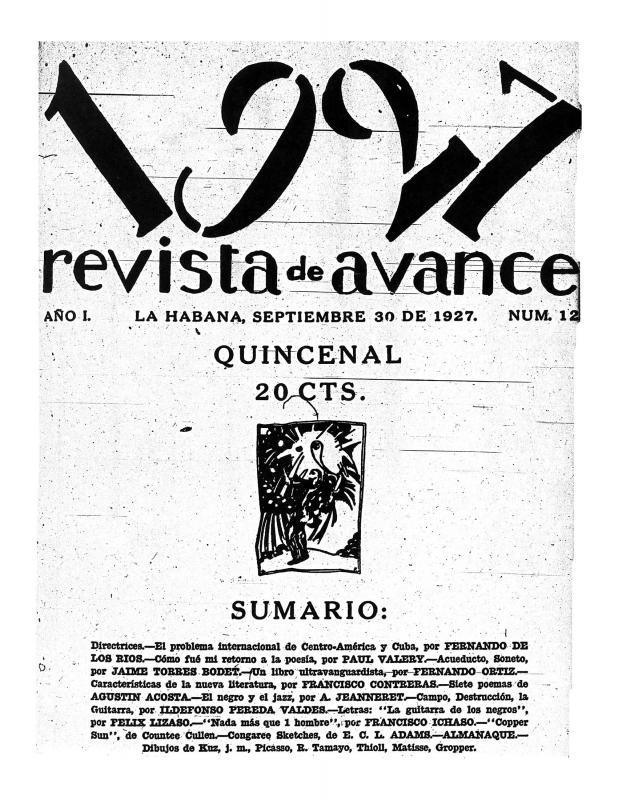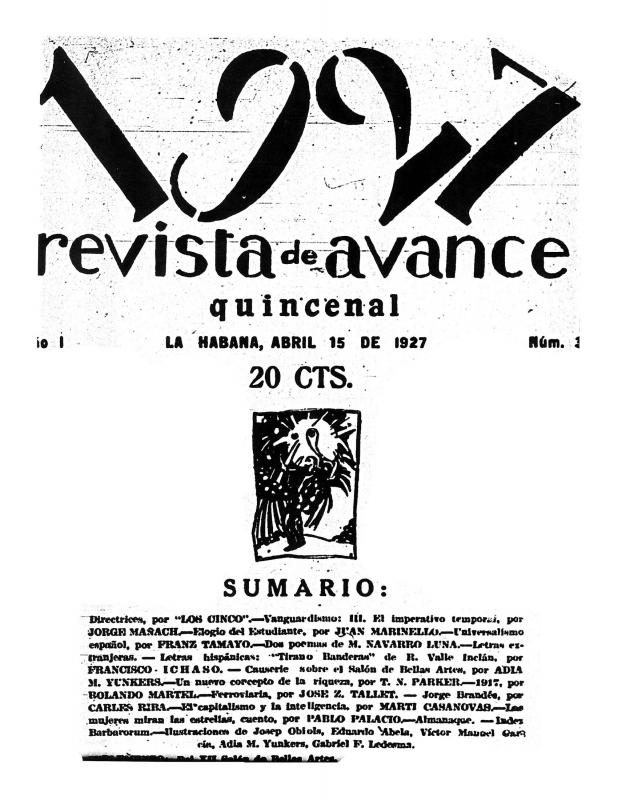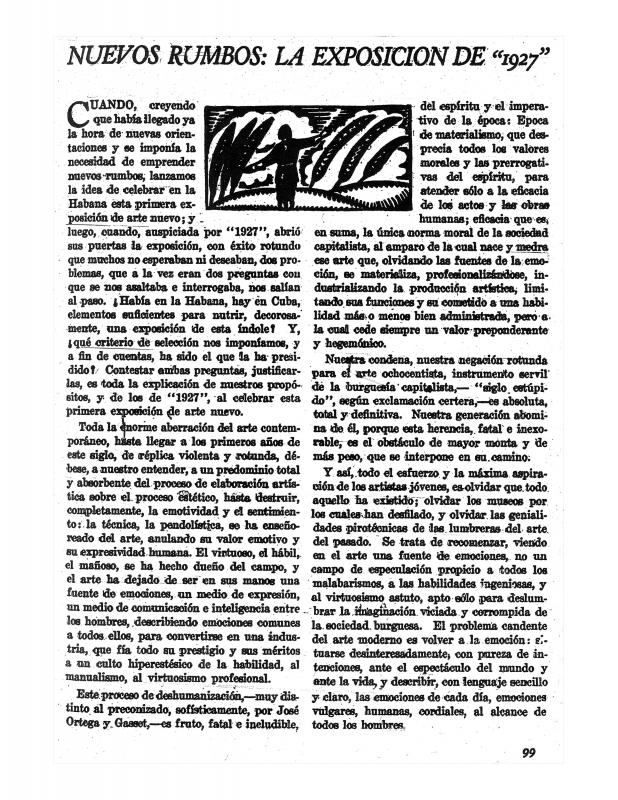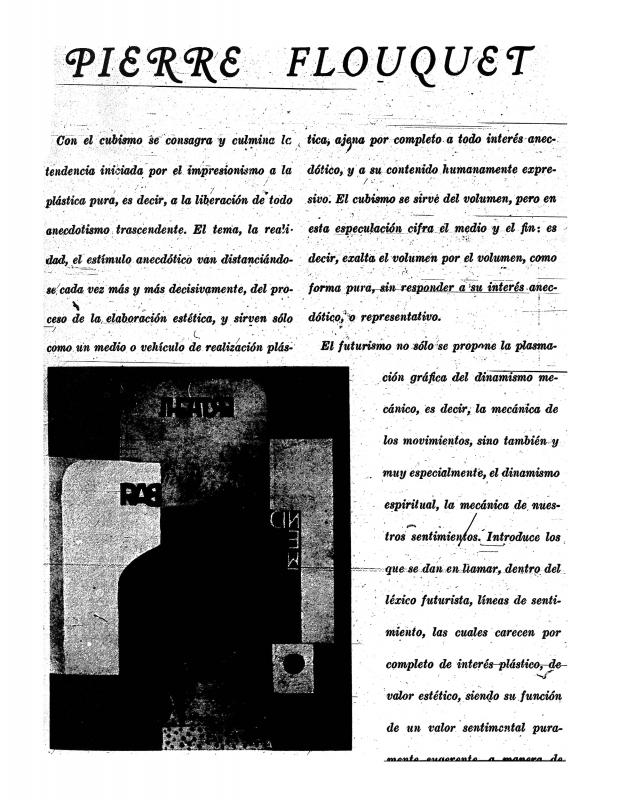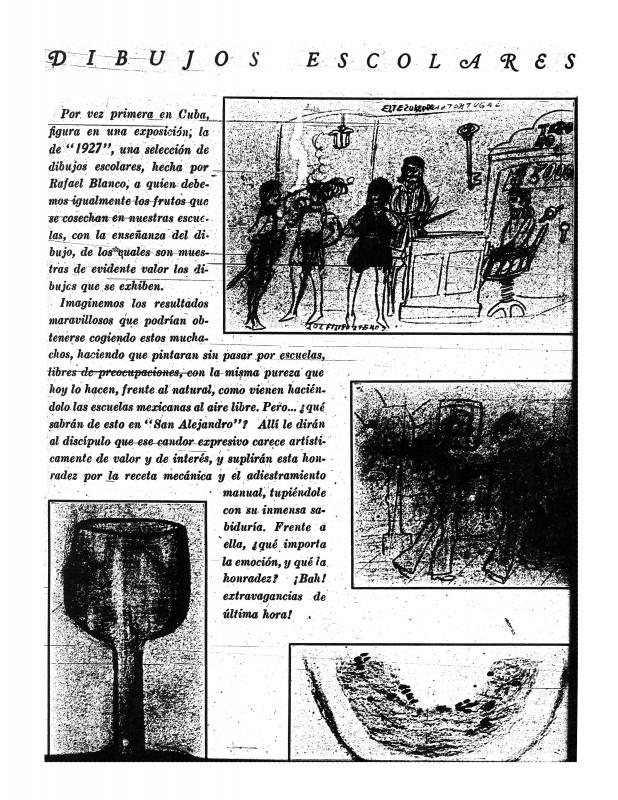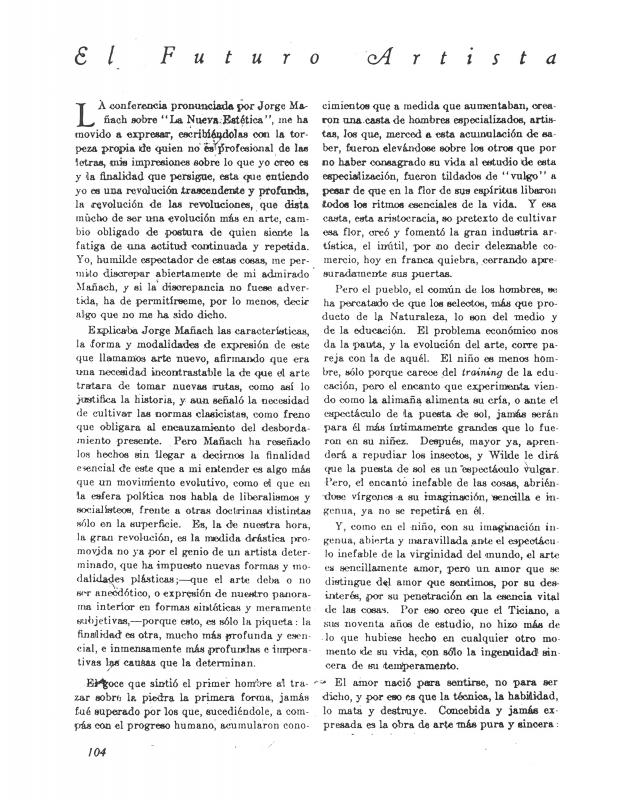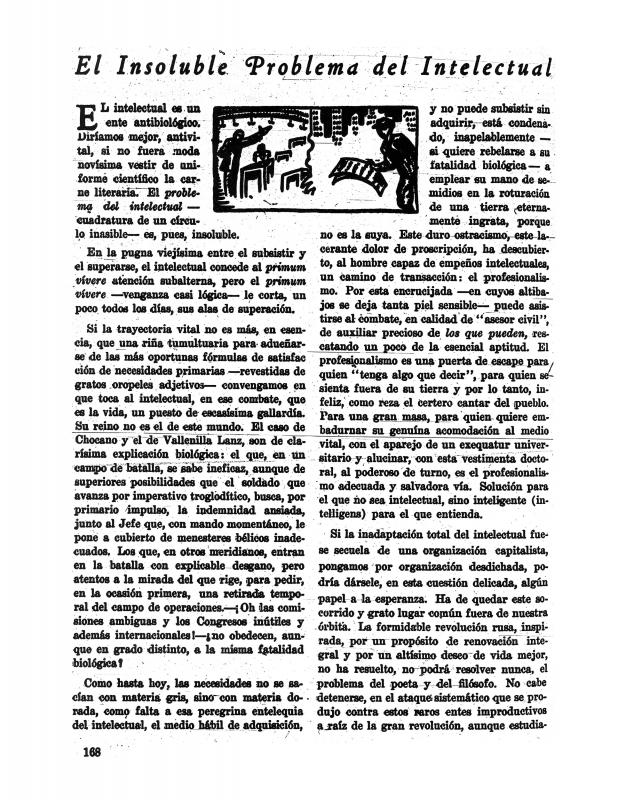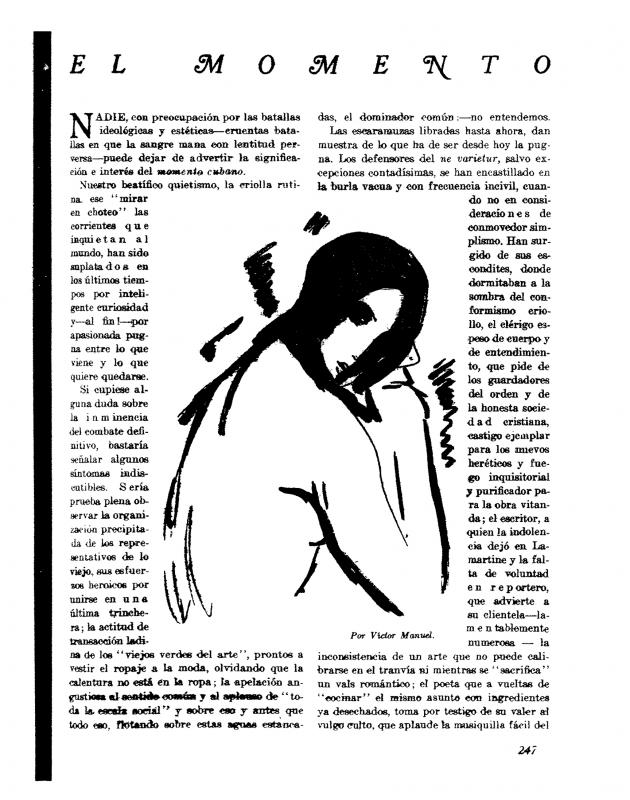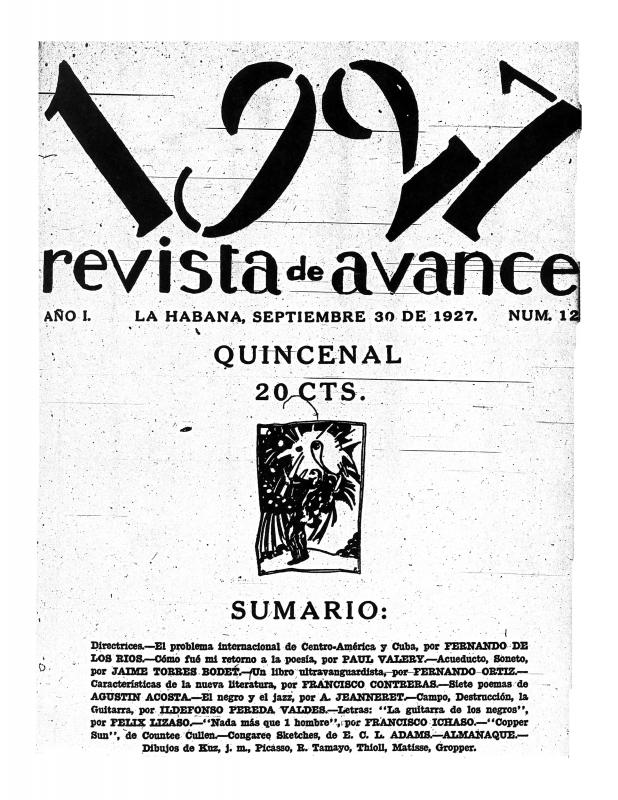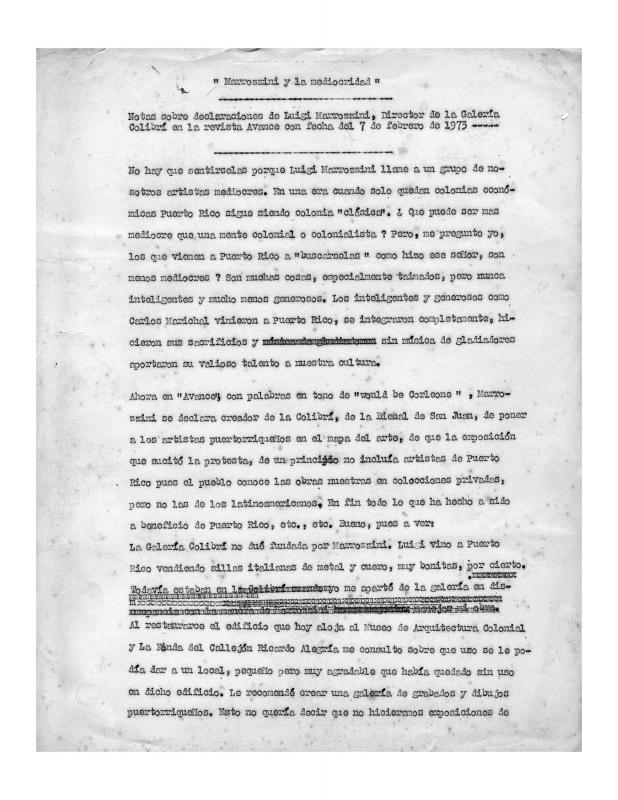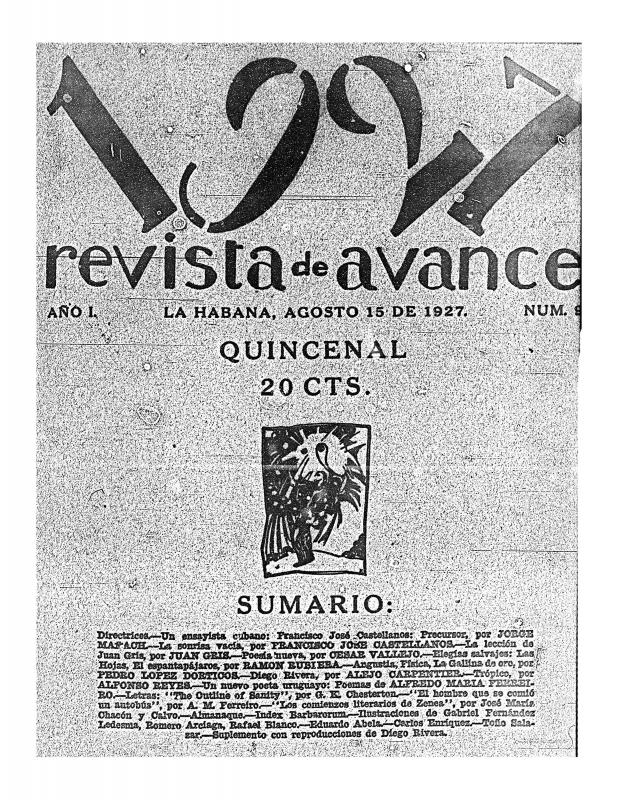Raúl Roa García (1907–82) was a Cuban intellectual and politician. He studied law at the University of Havana, and with Julio Antonio Mella and Rubén Martínez Villena, he participated in student protests against the Machado dictatorship. After being arrested for his activities and exiled to the United States, he studied at Columbia University and the New School for Social Research in New York. Roa made important contributions to both literature and journalism, including the historical work “Historia de las doctrinas sociales.” His contributions were published in a number of cultural journals in Cuba, Costa Rica, Mexico, Argentina, and Colombia. He also published numerous essays and articles about the life and work of José Martí. In this text, Roa discusses the avant-garde nature of the poet’s work and thinking. Unwilling to be limited to the modernist trends that proliferating during his lifetime, Martí developed a unique style guided by his own sensibility. Highlighting his characteristics as an avant-garde artist, Roa illustrates the close relationship between ethics and aesthetics in the poet’s work. He points out the ethical and political commitment in Martí’s thinking, along with the way this is revealed and stands out in his poetry, differentiating his work from that of his contemporaries. Like Jorge Mañach and Juan Marinello, Roa was another Cuban intellectual who spent time studying and reviving Martí’s work. This work was fundamental to both the development of the Cuban intellectual movement and the formation of nationalist ideals. [For other essays and texts published in Revista de avance, see the following in the ICAA digital archive: “Índice del Tomo I (Números 1 al 12 inclusive)” (anonymous) (doc. no. 1300106); by Martí Casanovas “Almanaque” (doc. no. 1299709), “Almanaque: Exposición Gattorno” (doc. no. 1298711), “Nuevos Rumbos: La exposición de ‘1927’” (doc. no. 1280155), and “Pierre Flouquet” (doc. no. 1299881); “[El arte nuestro debe ser instintiva o intuitivamente americano...],” by Víctor Andrés Belaúnde (doc. no. 832310); “[Basta con que revele una honda...],” by Carlos Préndez Saldías (doc. no. 832258); “Causerie sobre el Salón de Bellas Artes,” by Adia M. Yunkers (doc. no. 1298799); “[Creo que el artista americano...],” by Ildefonso Pereda Valdés (doc. no. 832328); “Dibujos escolares” (anonymous) (doc. no. 1299805); “Diego Rivera,” by Alejo Carpentier (doc. no. 1299962); “Eduardo Abela: pintor cubano,” by Adolfo Zamora (doc. no. 1280283); “El futuro artista,” by Eduardo Abela (doc. no. 1299789); by Juan Marinello “El insoluble problema del intelectual” (doc. no. 1299897), and “El momento” (doc. no. 1125671); “El prejuicio en el ritmo intelectual de las épocas,” by Francisco Ichaso (doc. no. 1299741); “El problema internacional de Centro América y Cuba,” by Fernando de los Ríos (doc. no. 1300090); “La cuestión del negro” (anonymous) (doc. no. 1280299); “La lección de Juan Gris,” by Juan Gris (doc. no. 1299946); “Marrozzini y la mediocridad: notas sobre declaraciones de Luigi Marrozzini,” by Lorenzo Homar (doc. no. 861634); “Nacionalismo y Costumbrismo,” by Severo García Pérez (doc. no. 1300058); “Nacionalismos en América,” by Eugenio d’Ors (doc. no. 1299757); “Nota de los 5—2,” by Jorge Mañach et al. (doc. no. 1299930); “Programa de criolledad,” by Félix Lizaso (doc. no. 1125414); and “Vértice del gusto nuevo,” by Jorge Mañach (doc. no. 832383)].

